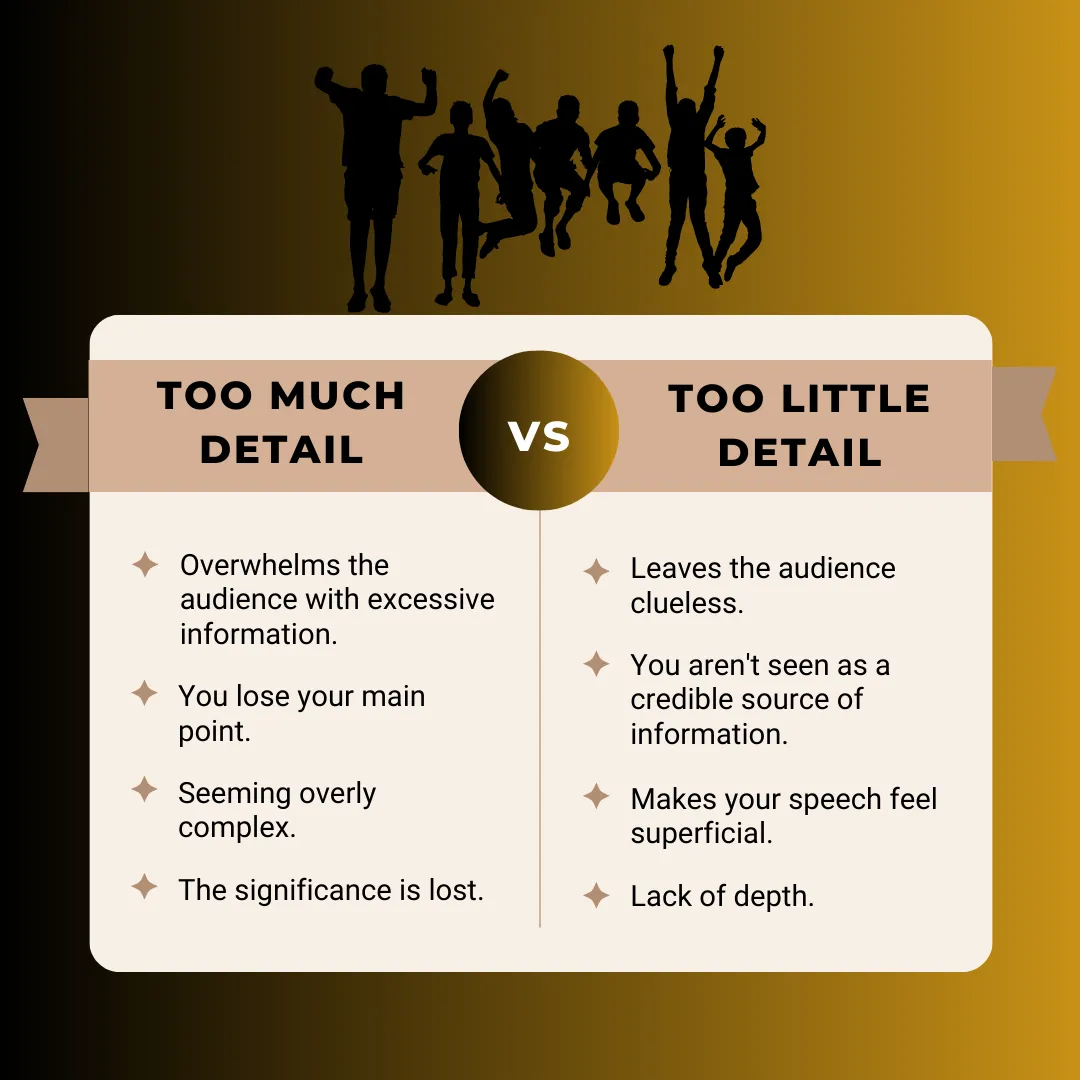By Khrystelle Abo | 17th May, 2023
Public speaking remains to be one of the most terrifying ordeals a student can face in their high school years. It’s similar to a rollercoaster ride with a million loop-de-loops – it can be scary, exhilarating, and you feel like you’re going to puke at any given moment. But with practice, you can learn to enjoy and even master the ride!
It’s an inevitable fate. You’re bound to speak in front of a panel of judges or a large crowd, watching your every move like a hawk. Adults, like students, must eventually face public speaking. From job interviews to pitches to conferences, the ability to captivate an audience and bring your ideas to life is a necessary skill to learn!

Public speaking is an art and science in and of itself that, like any other, requires practice to perfect.
In this article, read on to learn about the top 5 MISTAKES that public speakers make and how to counteract them.
I. Speaking In A Monotone Voice 🔊
In a public speech, especially one in a formal setting, your primary goal would be to sound as formal and intellectual as possible. Taken to the extreme, a lack of variety in one’s tone of voice or pitch can come across as dull and robotic to your audience’s ears, causing them to lose interest in both the speaker and message.
To avoid this mistake, add color to your speeches by delivering them with a wide range of tone, pitch, and volume by emphasizing main keywords.
The average human attention span is roughly 8 seconds, and if the speaker does not capture the audience’s attention within that time frame, they may lose them for good!
II. Failure To Engage With The Audience 🎭
Holding eye contact is a powerful first move, but most people stop there – hence the second worst mistake you can make in public speaking.
Think of it as a two-way conversation. Use appropriate gestures and pace around to match the energy of the room as if you were telling a single person about the message you are seeking to convey.
When you’re up on stage, it’s easy to get caught up in your own speech and lose sight of your audience. Make a conscious effort to interact with your listeners – it’s all about making your audience enjoy themselves and wanting to hear what you have to say.
III. Adding Too Much Or Too Little Details 📝
Accurate statistics are a good part of any speech, but numerous info-dumps can confuse an audience if overdone. Excessive detail may cause you to get off track and forget your outline, which might entail the perfect recipe for disaster!

Striking the right balance between these two extremes requires practice and a focus on delivering your message in a clear and concise manner. Keep in mind that your audience is there to learn and engage with your ideas, not to be lectured on every minor detail of your topic!
IV. Using Filler Words 🗣️
… Especially if you are only looking to fill in the silence.
We understand. You often need a moment or two to think, and in your haste, a slow “um” escapes your mouth. You resort to a common habit so that your audience does not hear dead silence in the following four seconds. Excessive use of filler words can make the speaker appear unprepared or inexperienced, which can undermine the credibility of the message you’re trying to communicate.

In this scenario, remaining silent to gather your thoughts can be perceived as more professional and self-assured than making an awkward noise at the back of your throat.
🤔 Here Are Some Key Pointers To Look Out For:
- Practice your speech in advance.
- Become comfortable with the material.
- Speak at a steady pace and rhythm.
- Take your time to slow down; both in practice and performance.
- Exercise mindfulness and breathing techniques.
V. Not Practicing Enough 🙌
“Every great artist was first a terrible one.”
—Edward Abbey
📌 Quote Analysis! This quote highlights the importance of failure in the development process, for even the masters had to start somewhere.
The often-repeated adage, “practice makes perfect,” has served as a guiding principle for countless endeavors throughout history. But have you ever taken it to heart?
There are no shortcuts when it comes to perfecting your craft, like any other skill. One of the BEST WAYS to prepare for a public speech is to practice in front of a friend or family member and request constructive feedback.
Another effective approach is to record yourself rehearsing and watch the video afterward to identify any physical or vocal habits that stand out the most, such as fidgeting or mumbling.

Practicing in front of an audience can give you a chance to experience the real-time nerves before the day of your speech, giving you time to build strategies beforehand. In the end, it all comes down to putting in the time and effort to practice, practice, practice!
Key Take-Aways 📌
- Deliver your speech in a rich tone and emphasize key points.
- Make a concerted effort to interact with your audience.
- Include the appropriate amount of data in your speech.
- Maintain a consistent pace and rhythm when speaking.
- Preparedness is key for a good public speaking performance.
You can research all you like about the topic you’re tackling, or know your script like the back of your hand – at the end of the day, it all boils down to one singular component: CONFIDENCE.
It doesn’t matter how many countless tips and tricks you’ve read online to deliver a polished performance. Confidence is the true key to delivering a powerful and persuasive public speech that will leave a lasting impression on the minds of your listeners. This article only scratches the surface on how to command attention like a star in the spotlight.
So, whether you’re a seasoned professional or a newcomer nervous for your first-ever public speech, remember that confidence is your knight in shining armor!
👑 Build it through practice, and let it shine through your performance.

“The greatest danger in life is not taking any risks.”
—William Arthur Ward
Thumbnail Design by Mudit Jha






Forgot password?
Close message
Subscribe to this blog post's comments through...
Subscribe via email
SubscribeComments
Post a new comment
Comment as a Guest, or login:
Connected as (Logout)
Not displayed publicly.
Comments by IntenseDebate
Reply as a Guest, or login:
Connected as (Logout)
Not displayed publicly.